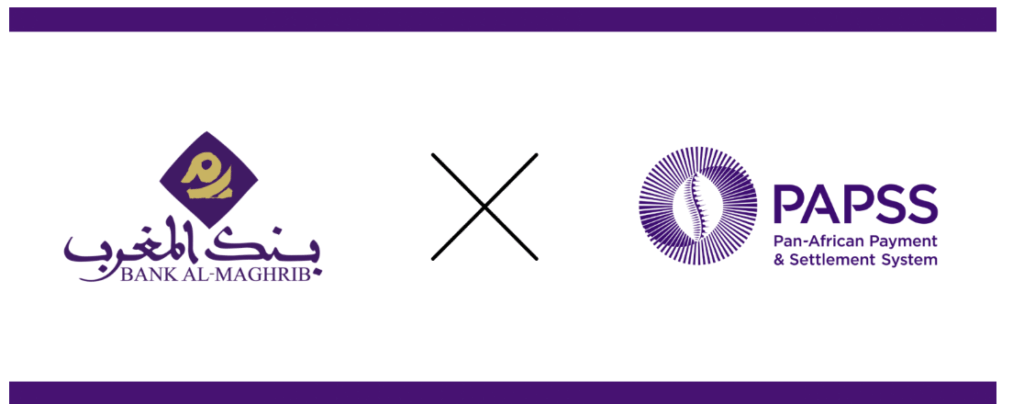
By Baboloki Semele – In a landmark development for African financial integration, the Kingdom of Morocco has officially joined the Pan-African Payment and Settlement System (PAPSS), becoming the 17th country to do so. Bank Al-Maghrib, the Moroccan central bank, signed the membership agreement with PAPSS, underscoring the country’s commitment to deepening its role in intra-African trade and economic cooperation under the African Continental Free Trade Area (AfCFTA) framework. The Pan-African Payment and Settlement System, developed by the African Export-Import Bank (Afreximbank) in collaboration with the African Union and the AfCFTA Secretariat, serves as a pioneering financial market infrastructure designed to streamline cross-border transactions in local currencies. With real-time, efficient, and cost-effective settlements, PAPSS is revolutionizing how African countries trade and invest with one another, removing long-standing payment bottlenecks and reliance on foreign currencies for intra-continental trade. Morocco’s inclusion represents a strategic expansion of PAPSS, extending its footprint across North Africa and signaling growing continental trust in the system. According to Mike Ogbalu III, Chief Executive Officer of PAPSS,
“We are delighted to welcome Bank Al-Maghrib to the PAPSS family. Morocco’s entry as our seventeenth country of presence demonstrates the growing momentum and trust in PAPSS as the solution for Africa’s cross-border payment challenges.”
Ogbalu emphasized that every new entrant into the PAPSS network is a step forward in actualizing the dream of a truly unified African market—one where transaction costs are lower, currency conversion inefficiencies are removed, and financial access is broadened.
Since its official launch in Accra, Ghana, on January 13, 2022, PAPSS has experienced exponential growth. It is now operational in 17 countries and boasts integration with over 150 commercial banks and 14 payment switches across the continent. The system has rolled out three key payment solutions:
- PAPSS Instant Payment System (IPS): Enables real-time transactions across African borders.
- PAPSS African Currency Marketplace (PACM): Facilitates transparent currency conversion and supports local currencies.
- PAPSSCARD: A digital payment instrument designed to provide users with seamless and secure continental payment experiences.
These innovations are enabling African traders, SMEs, financial institutions, and consumers to conduct business efficiently and affordably within the continent, without the need for converting local currencies into dollars or euros.
The PAPSS initiative was first introduced during the Twelfth Extraordinary Summit of the African Union in Niamey, Niger, on July 7, 2019. Recognizing the critical role financial integration plays in the success of AfCFTA, the Assembly of the African Union directed Afreximbank and the AfCFTA Secretariat to fully implement PAPSS across all member states. The 35th Ordinary Session of the Assembly further reinforced this directive, paving the way for PAPSS’s rapid continental deployment.
With the addition of Morocco, the network gains a vital North African economic hub, enhancing trade corridors between West, Central, and North Africa. It also reinforces PAPSS’s foundational principle—that Africa’s economic destiny lies in African solutions designed by African institutions. According to a press release issued by Afreximbank, the PAPSS mission is not merely technical; it is political, developmental, and transformative. And the bank anticipates that as the system continues to grow, expectations are high that all AU member states will soon adopt PAPSS as their default cross-border payment mechanism. This would effectively remove one of the greatest non-tariff barriers to intra-African trade and help unlock the full potential of the AfCFTA.
Afreximbank says the alignment of PAPSS with the African Union’s Agenda 2063 vision—“The Africa We Want”—is not coincidental but central to achieving goals related to economic prosperity, industrialization, and pan-African integration, adding that with Morocco now on board, and more countries expected to join in the coming months, Africa is sending a strong message that the continent is ready to trade, invest, and grow on its own terms, in its own currencies, and through its own institutions.
About PAPSS
The Pan-African Payment and Settlement System – PAPSS is a centralised Financial Market Infrastructure that enables the efficient flow of money securely across African borders, minimising risk and contributing to financial integration across the regions. PAPSS collaborates with African central banks to offer payment and settlement solutions that commercial banks and licensed payment service providers (switches, fintechs, aggregators, etc.) across the continent can connect to, making these services accessible to the public. To date, PAPSS has developed and launched 3 payment solutions: PAPSS Instant Payment System (IPS), PAPSS African Currency Marketplace (PACM), and the PAPSSCARD.
Afreximbank and the African Union (“AU”) first announced PAPSS at the Twelfth Extraordinary Summit of the African Union held on July 7, 2019, in Niamey, Niger Republic, therefore adopting PAPSS as a key instrument for the implementation of the African Continental Free Trade Agreement (AfCFTA). Further, in its thirteenth (13th) extraordinary session, held on December 5, 2020, the assembly of the African Union directed Afreximbank and the AfCFTA secretariat to finalise, among others, work on the Pan-African Payments and Settlements System (PAPSS). The 35th Ordinary Session of the Assembly of the AU further directed the AfCFTA and Afreximbank to deploy the system to cover the entire continent. PAPSS was officially launched in Accra, Ghana, on January 13, 2022, thus making it available for use by the public.